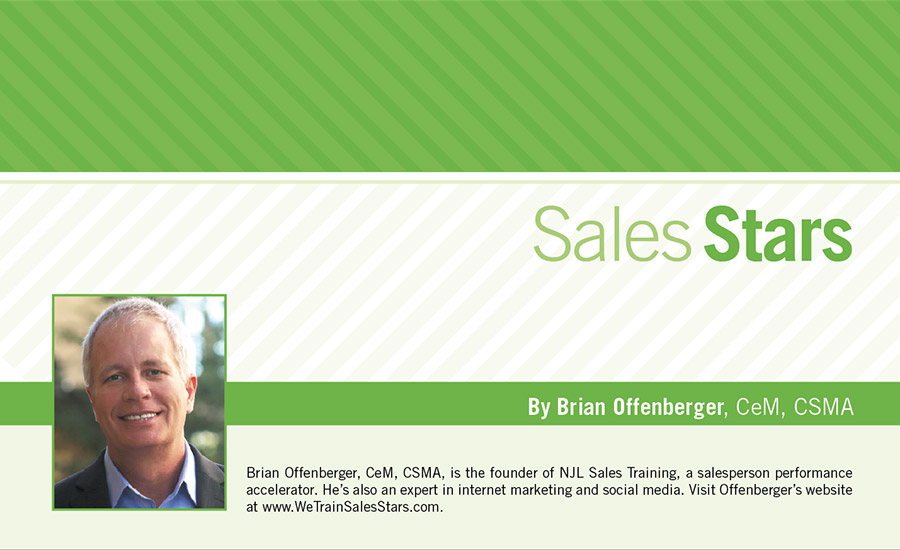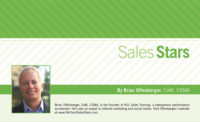So you need a new salesperson. You solicit resumes and review them all to find the top candidates. Human Resources may even help you with screening before you call in your top prospects for an interview. You and others in your organization put the candidate through the ropes. You ask them a litany of questions to determine if they can do the job and if they are a good fit for your company. You may even do some psychological or personality testing. Then you make your decision.
For the vast majority of security companies in North America, that’s the process used for hiring salespeople. The problem with this approach is that it is the wrong way to pick great salespeople and it ignores what research says about picking good employees.
Research shows interviews to be virtually worthless in predicting how well someone will do in the future. The best indicator of future performance is past performance. That’s why work samples, job knowledge tests and peer ratings of past performance are much more useful and much more accurate predictors of future job success.
Researchers from the University of Pennsylvania and Carnegie Mellon called interviews a “ubiquitous tool for making screening decisions despite vast evidence of their invalidity.”
So why do we rely so much on interviews when they don’t work? Because we think we’re good at it. As one vice president of human resources for a large integrator said, “All managers think they’re a master at reading a person.” Psychologist Richard Nisbett noticed what he calls “the interview illusion,” which he described as our certainty that we’re learning more in an interview than we really are.
Just last month the National Football League (NFL) held its annual ritual of hiring new employees. Can you imagine a pro football team that drafted its new players simply by looking at their resume and asking them about their biggest weaknesses? Or how about a basketball team that ignored scoring averages, turnovers, and rebounds and instead evaluated free agents by inviting them for dinner to see if they’d be a good cultural fit?
Instead of relying so much on interviewing, spend time determining if candidates can do the job. Research has repeatedly shown that work samples are the best indicator of job performance. When hiring a salesperson, have them sell you something. Role play. Go on a sales call with them. See examples of their work.
My old friend John Meyer many years ago worked with salespeople at George Alarm Company in Springfield, Ill. John needed to fill a position and was delighted when an acquaintance at a networking club recommended someone “just perfect” for his open sales position. The candidate had lots of experience and he and John hit it off during their first meeting. John thought he had found his next sales star.
Then came time for John to administer his test. He asked the candidate to respond to common objections, things such as “your price is too high” or “I’m already working with XYZ company.” John used a simple writing test to see how candidates handled normal sales correspondence, such as follow-up letters and thank you notes. And when the testing was over, John knew the guy wasn’t the right man for the job. He was clumsy when responding to objections. The responses weren’t effective. His writing was terrible.
He didn’t get the job. Hiring mistake avoided.
Peer reviews are another great indicator of job performance. Peer reviews in this context mean co-worker assessments, competitor assessments and client reviews. Find out how others feel about the candidate you are considering. Talk with past co-workers (you can find them on LinkedIn). Talk with competitors. Find out who they think are the top performers in your market.
Social media profiles can help with peer reviews, as well. For example, LinkedIn profiles display endorsements and recommendations. Read these profiles to see the number of endorsements and the quality and quantity of recommendations for a particular candidate.
Evaluating work samples, using peer reviews and administering job tests give you a strong advantage when hiring. Let your competitors ask about someone’s “greatest weakness” while you use practices to discover the true sales stars.








